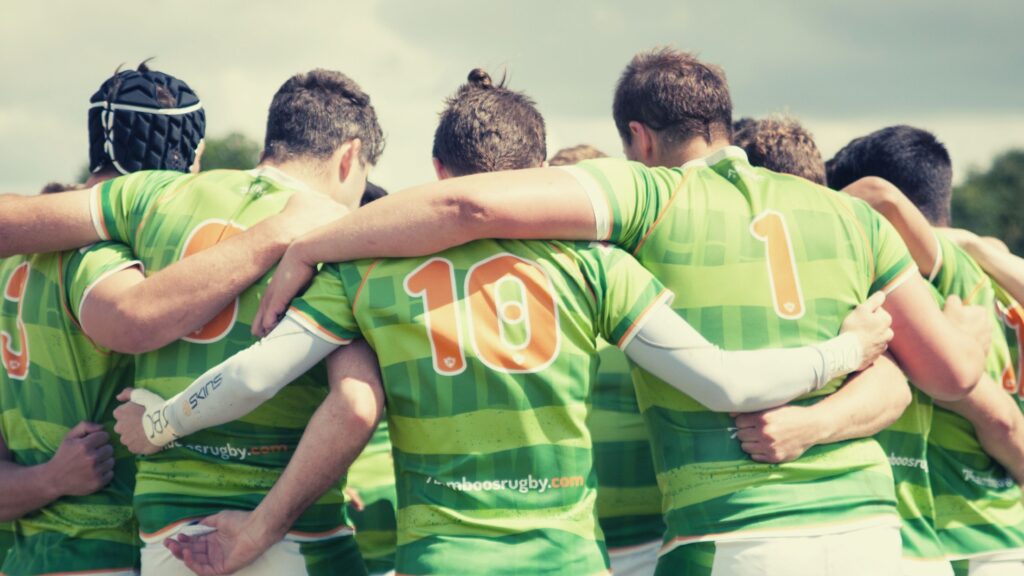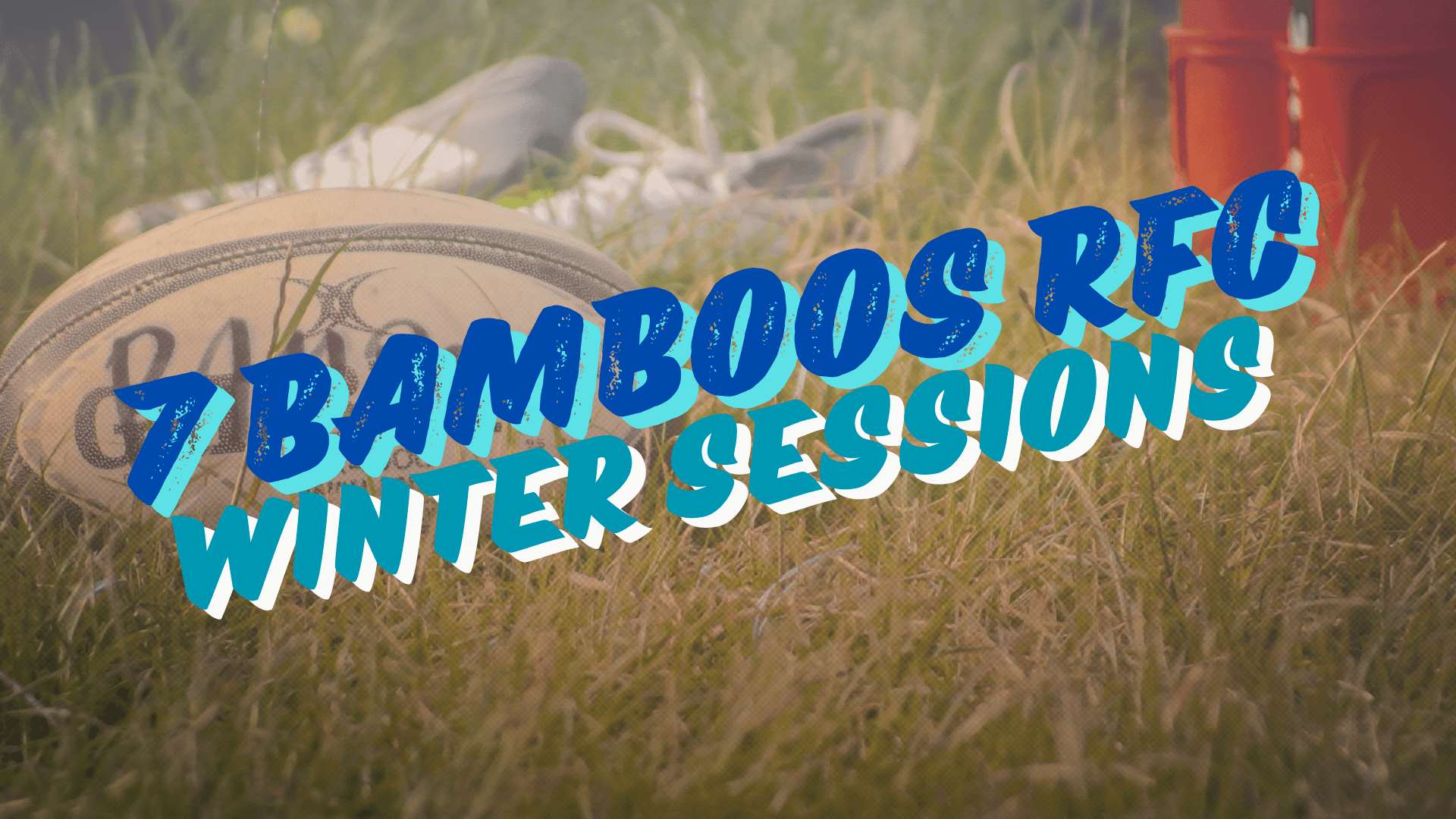Get ready to kick off winter with 7 Bamboos RFC!…

A Coaching Experience – From Sky High to Rock Bottom
Success is the ability to go from one failure to another with no loss of enthusiasm.
– Winston Churchill
This very personal story unfolds the experience of a young rugby coach and his first coaching position as a head coach. It tells the story of an individual who experiences the complexity of this job with all its facets.
The described experience offers a framework to develop coaching effectiveness by learning from real-time experience. The main goal is to investigate to which degree a coach learns from experiences and how influential educational processes are toward an effective coaching career.
I am a “real” coach, now!
It is a sunny day in August 2010. I recently graduated from university with a sports coaching degree which makes me officially a scientific coach but I hear myself doubtfully asking if I am a practical coach as well, a complete coach.
A couple of weeks before, a university senior rugby team in Somerset are seeking a head coach who would like to work with the team twice a week to guide the training and attend the match days. This job is mine, I whisper with a good deal of confidence while reading the advertisement.
And indeed a few days later I am sitting in a modern city café with the president, a player as well, and the captain of the team to discuss ideas about how to approach this role and to clarify my coaching philosophy. I emphasize that I see myself as a democratic coach, who centralises the players at all times and who prefers a game sense approach in training, elements I gained from previous playing, coaching, and academic experiences.
They seem to like it and I like the fact that I am a head coach now. The point that this position is unpaid doesn’t really upset me. I am a young, relatively inexperienced coach at this stage. All I want is more coaching experience, I want to coach rugby!

A great start to the new job
The first couple of weeks with the team are both inspirational and motivational. It is the end of the summer and the climate is still warm, I am full of excitement about this role. But even more important than the environment is some sort of inner satisfaction which confirms, I am an “actual” coach now. It feels like I made it, or at least I made something.
I am not sure what I have achieved but it feels good. I am in charge now and the team responds with a great deal of appreciation for my work, which gives me the feeling that I am doing something right. It is a sort of responsibility I experience which gives me the feeling coaching is so important to me.
Since the beginning of the undergraduate course I knew, I always wanted to become a coach. I knew that this is my chosen profession, this is me. I tried and failed with so many other career paths before. By being an actual coach, not just a coaching student, I realise how desperate I was to become a coach in order to experience inner satisfaction.
The team consists of many motivated young players and each training session has the sort of intensity, enjoyment, and attention to detail I am looking for. They also give me the feeling that they enjoy my coaching style, not just by participating in the sessions but also by seeking advice and by giving constructive feedback about my work which satisfies me even more.
A change in climate
Moving on another couple of weeks’ British autumn has arrived. The weather is now windy, cold, and wet. We had to move our training base from the campus to a local rugby club, as there are no floodlights on-site. The local rugby club has some very weak floodlights, but better than none at all I thought.
We also had our first couple of games under the belt and I realise for the first time, that this job is not as smooth and easy as I was hoping for in the first place. We are losing the first three games, although we are playing some good rugby or at least I perceive it as good rugby.
I must admit that the standard in this league is high, maybe too high for us. However, I try to maintain the motivation by referring that we need to stay patient in order to succeed, as this is a long collective process, a learning curve so results shouldn’t matter in this first season. I have the feeling that the players take this message well on board.
However the training attendance drops with every match, we also have more and more injuries. Some of the boys seem not to be fit enough for the demands of this standard despite the fact that we worked very hard on the fitness in summer, I even employed an own fitness coach.
Although our squad was never very large, I think we had around 40 players at the beginning, which was enough for two teams. However, with increasing injuries and some drop-outs, we struggle to get two full sides together.
So we had to decide in the middle of the season to pull the second team out of the league, which felt like a relief in the first place as we could focus on one single side. Reflecting on this particular case, it feels more like a disappointment as I ask myself why I wasn’t able to keep the squad together in order to supply two teams.
Things are getting worst
The rainfall in October and November of that year is immense. The club we train at is very concerned about the state of the pitch as the lights are only covering a small area of the field and we also share it with the club’s regular sides. At some point in November, the club decided that the pitch couldn’t hold the load of training anymore, so they asked us to leave.
This is another major setback that feels like being let down once more. Retrospective I can fully understand the club’s decision, but back then it was a horrible feeling because I could almost sense that this decision would have a further negative effect on the team’s progress.

My frustrations raise but I try hard to stay positive. I still feel so strong and passionate about this team at this point, so I arrange a board meeting because I desperately want to sort this situation out. I want a facility to coach, any facility.
However this turns out to be much harder than expected, most clubs in the region don’t want to let us train on their fields, simply because they haven’t got enough capacity to share their pitch in the middle of the season.
We move the training to a local sports hall. It is a small smelly sports hall that does not allow any contact drills, due to the hard surface, so I am further restricted in my coaching. I believe that this affects the attendance and attitude to a negative degree as well. I strongly believe that performance is heavily influenced by the environment.
I lose control!
The training does not feel like rugby training anymore, it feels like a recreational get-together to have some fun and enjoy physical activity, without being conscious about what we are doing and where we are heading to. The players still turn up, but it doesn’t feel anything like the first sessions at all, back in the summer on a proper rugby pitch.
The team panel consists of students who are also players. A group, including the captain, vice-captain, and social secretary lived together in student accommodation. They are all very strong characters and I assume they enjoy the fact that they are aware of the power they have within the club.
It took me a while to figure out, how significant that influence was on my work. I was not aware of how accurate they observed my coaching and how influential the reaction upon this observation was. The pinnacle came in February.
At this time the team seems to be almost separated into two or three minor groups. I realise that each group has its own interests and idea about the future of the club which causes internal conflicts between the players. By this point, I knew I lost control. I knew that the influence of some players’ opinions was stronger than my coaching.
How could that happen?
With every further session, I notice that I have less power over the team’s actions. Realising that frustrates me and leaves me with a lot of doubts about my coaching style. The most frequent question I ask myself is what I did wrong that this could have happened.
I always question myself first rather than the players if things do not go well. My friends tried to convince me, that it is not my coaching but the player’s attitude which caused this situation; I don’t want to accept it. I am talking a lot to myself at this time, I realise how emotionally attached I am to this job and how much I want to fix the whole situation.
I hit rock bottom
In this one session in February, only a few players turn up to training. It is blistering cold and two nights before another tough encounter. I am angry, I want to see more players especially now in these tough times, I want to go through this period together with the team and then come back better and stronger but it feels like some players are letting me down.
So I get the team together just before the session and I mention how disappointed I am by the fact so many players are not here. I finish my little huddle speech by emphasizing the dissatisfaction with the absence of my captain. Then we train. Later I will find out that it was the wrong decision.
Approximately an hour after the training, my mobile phone is beeping and I receive a text message, it shows the captain’s name on the display. I pull the car aside and read the text message. It is long and after the few first lines, I realise it is nasty and angry as well. It describes word by word the massive disappointment he and some other players feel about my critique points I just mentioned in training and it goes on about the lack of professionalism I showed, not just today but for a while.
While I am reading the text in the car, I feel terrible. I can’t believe that some of the players went to the captain straight after the training and told him what I said, but at the same time I fully understand it, so I concentrate on his statements, it hurts me to notice that my coaching is not “professional”. Why could I not keep these things to myself and discuss them straight with the captain, honest and direct? The same way I always asked players to do with any issues. I feel gutted because I knew I did something completely wrong. Back home I sit on my bed and think about my future regarding the team.
An hour later I reply to the text, stating that I will no longer be the head coach of the team and resign with immediate effect. I wish the team good luck in the future.

Conclusion
Admittedly, this story can be a frustrating read, especially if you are a young, aspirational coach. However, its purpose is anything other than causing frustration.
There is no doubt that in any coaching-related role there will be many ups and a lot of downs. That’s just the nature of working with humans. The key is to understand your emotions and to become a reflective practitioner.
When I went through these early phases of my coaching career, I wish I would have been able to reflect a lot more upon my own actions.
A lot has changed since the first job and I was lucky enough to work successfully with a wide range of athletes and teams. At the Bamboos we try to implement all our collective coaching experience so we can offer the best possible development. To find out more about our coaching philosophy at the Bamboos click here.
#coaching #reflection #personalstories #rugbycoaching





